With Women’s achievements being celebrated throughout March, Hopes Malaysia sheds light on the hardworking rural women in Kota Belud, Sabah who are striving to improve their families’ futures.
This group of farmers from the rural community is part of the Sabah non-governmental organisation (NGO) sustainable #Womenpreneurship Programme - a trial by the NGO to instil entrepreneurial skills and mindsets in rural women to achieve economic self-sufficiency.
Further developing the beneficiaries from Mah Sing Foundation's (MSF) sponsored sustainable farming project in 2021, women are empowered with the skills and knowledge to not only provide their families with better food security and income but also to improve their business talents, becoming self-sustainable and independent entrepreneurs - mixing farming and business.
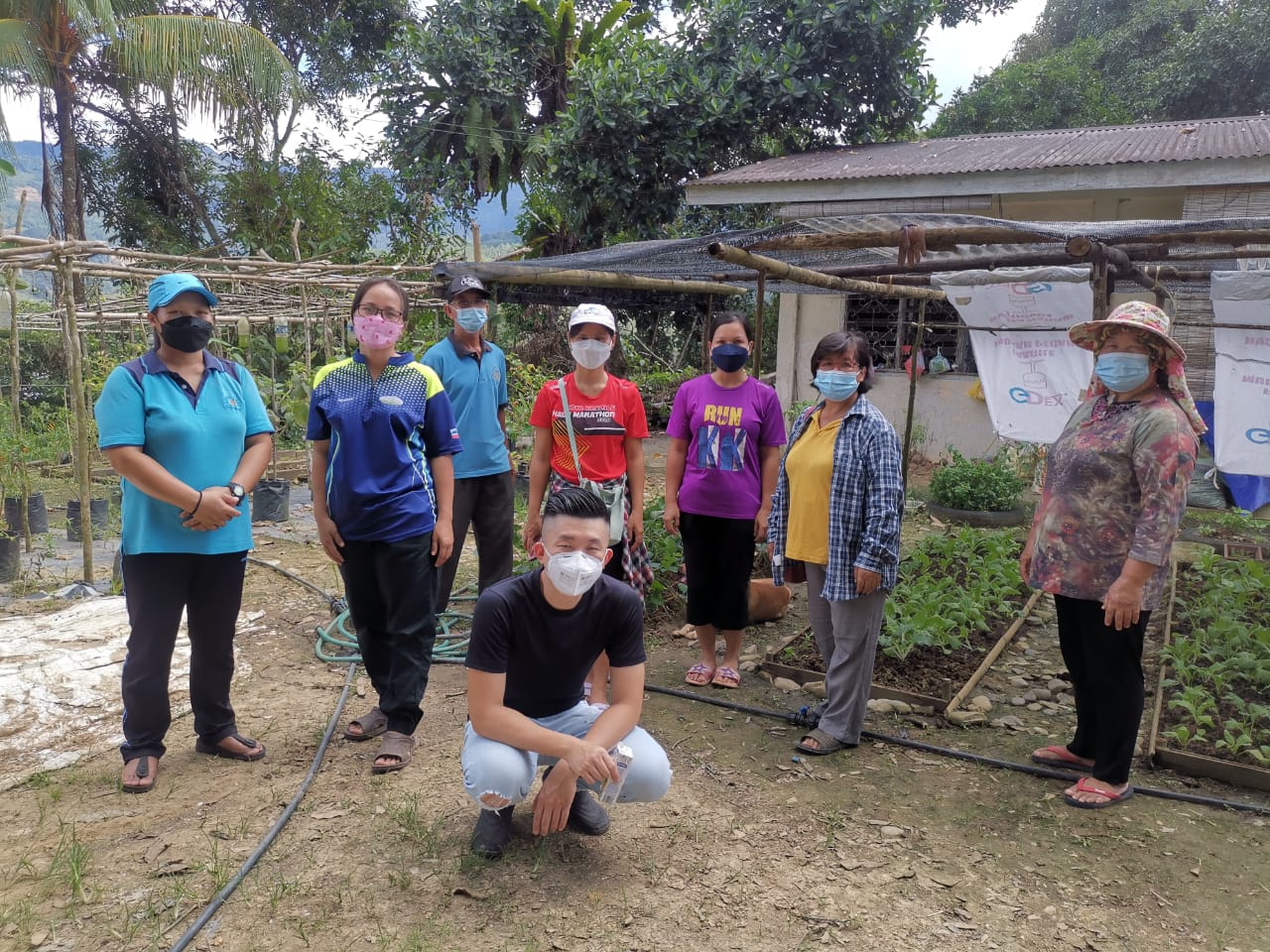
Hopes Malaysia's Sam Lee with a group of their Kota Belud Project Farmers
These women market their daily harvests and are able to sell their produce within the local Kota Belud community at Hopes Malaysia’s Gerai Tamu Kita, a specialised vegetable stall for the womenpreneurs set-up near Kampung Ratau. Before Gerai Tamu Kita, the NGO’s rural farmers sold their produce through weekly deliveries to urban Kota Kinabalu customers (and as food aid for the underprivileged) via their Tamu Kita platform.
The initiative enabled local rural farmers to sell over 25,000kg of fresh produce, generating more than RM75,000 in direct pay-out to them from 2020. Beneficiaries from the previous collaboration with MSF, who have excessive fresh produce grown from the project, are able to start their own business to market and sell their own and other community farmers' organic fresh produce at the 2-lot physical stall. The convenient location allows nearby communities to save on spending on transport to the far town for their food needs.
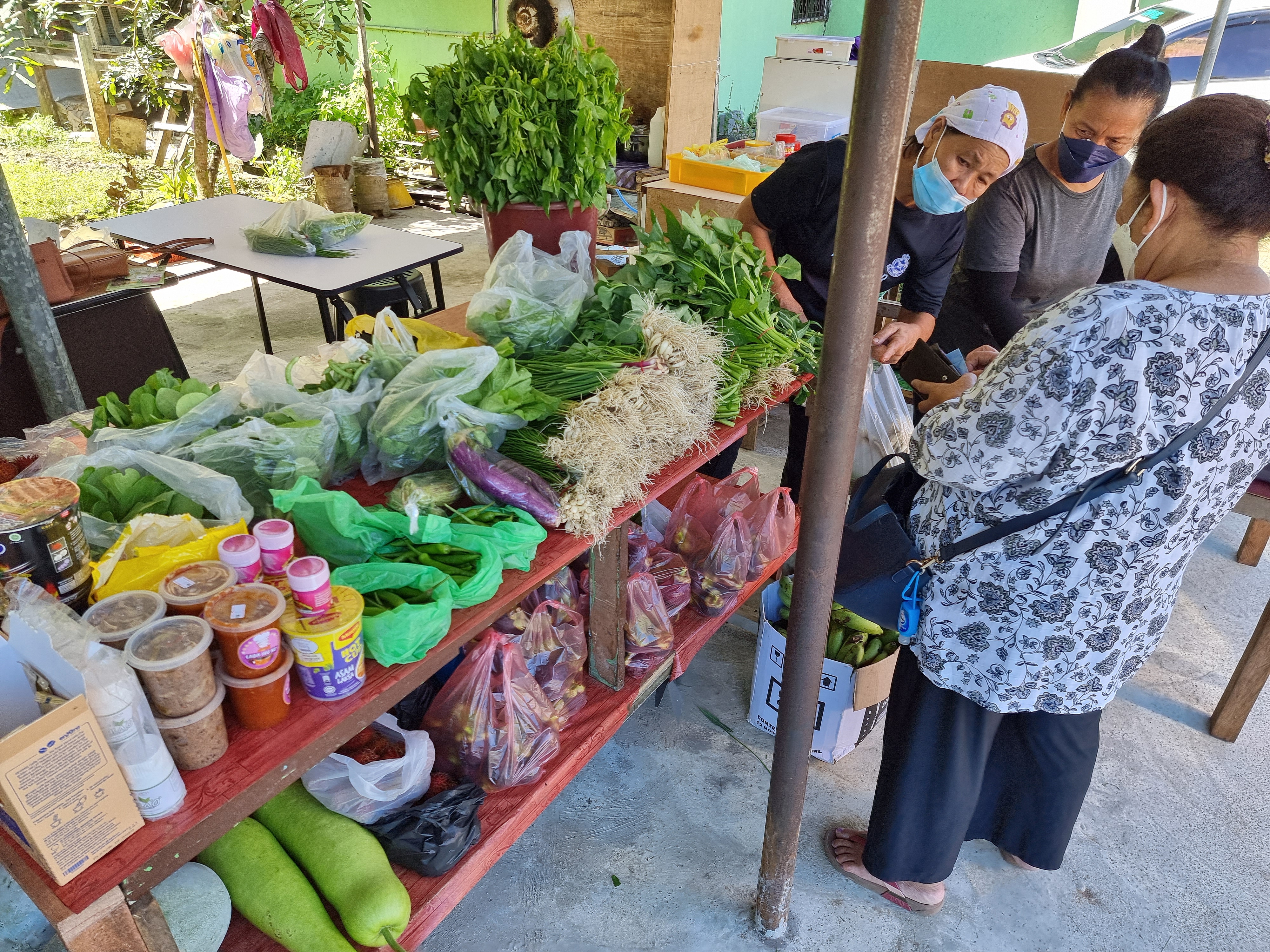
Rural Customer Purchasing from Gerai Tamu Kita
Business at the stall is ever-increasing and generating profitable revenue due to the women’s efforts. The stall
offers over 10 types of vegetables and goods, with produce sold daily as food security to two nearby rural communities. This has led to an upwards of RM 4000-5000 in monthly revenue for these women and improved 50% of their monthly income compared with their baseline.
Hopes Malaysia Founder Sam Lee explains that empowering and upskilling rural Sabah women is crucial in today’s world due to the ever worsening poverty issues and uncertainty of the Covid-19 pandemic. He adds “This programme gives rural women the opportunity to sharpen their entrepreneurial skills and run their own businesses to improve their livelihoods sustainably. The role of Hopes Malaysia is just to advise the farmers and housewives; each woman has her own responsibilities at the stall and makes her own financial decisions.”
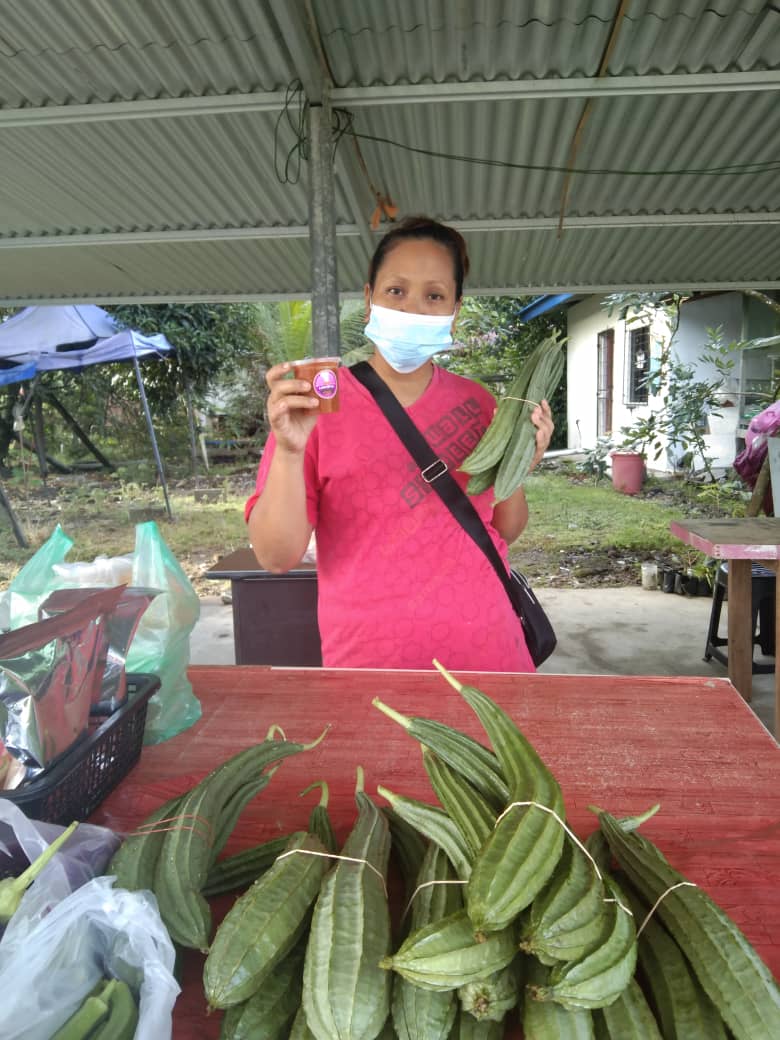
Puan Siti at the Stall
45-year-old Puan Siti is one these womenpreneurs working to improve her family’s life in Kampung Ratau. Like many of the programme’s participants, Siti was a housewife who had little knowledge about farming, with her family struggling to get by during the Covid-19 pandemic. “I could only sell homemade snacks from my house to help my husband. I needed to do more to reduce our burdens and expenses,” says the mother who is now expecting her fourth child.
Since joining the programme, Siti has been empowered by her fellow rural women farmers and role models; this has allowed her to take up sustainable small-scale farming while also tending to daily business at the community stall,
“I know more about Business now. Before this, I was only earning enough to feed my family, but now I can farm for more food while also earning extra income for our future.”
Siti frequently takes care of the stall and acts as its marketer, using social media to promote their harvests each day to other villagers.
She explains how her new skills attract sales in the local community, “Each day, I go online and post what we harvest in business groups and on my WhatsApp status. I make sure to take pictures when the vegetables look really nice and fresh. I do this a lot to let more people know about our stall, and all our vegetables are usually always booked or sold
out by 8 in the morning!”
Siti hopes that the stall continues to keep booming so that other women like her can earn additional income for their families while fulfilling the community's need for food security. She urges other rural women like her to not be afraid to become Womenpreneurs, "This programme has lessened my family's burdens, and improved my skills and household economy. The stall lets us easily sell our vegetables and products. Join us to benefit together."
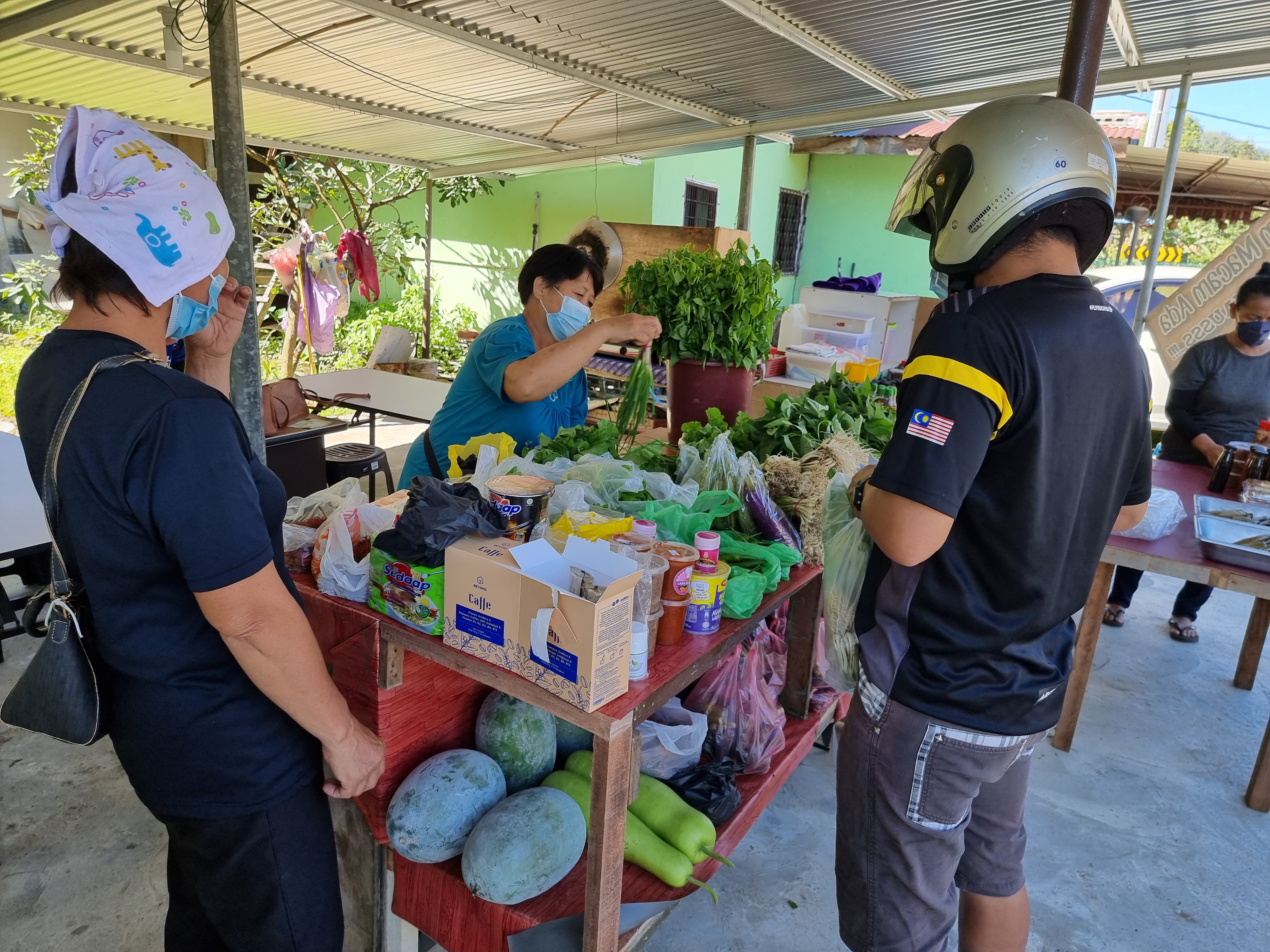
Puan Doimah Serving a Customer Purchasing Leafy Vegetables at the Stall
Also from Kampung Ratua is 57-year-old farmer Puan Doimah and her family of 9. With her husband unable to work and needing to look after their special needs son, Doimah became the sole breadwinner for her family’s livelihood. She needed a way to better support her family during the pandemic.
Becoming a Womenpreneur has not been easy, but she is glad that all her efforts have paid off. “I’m happy that we have the stall to sell at. It is easier and cheaper for us because we don’t need to travel far on foot or by car, customers come to us now.”
Since having joined the collaborators’ Sustainable Farming Project in 2021, Doimah has been constantly improving her farming techniques to sufficiently feed her family and having access to a convenient selling place only adds to her successes she states, “There are lots of customers at the stall, so I never have to worry about my vegetables being spoiled. I’m not worried about growing too much anymore and can grow almost 10 types of vegetables on my farm like pumpkins, chilies and greens.”
Doimah, who previously sold her produce at a faraway shop in Kota Belud, is relieved that her business costs have lessened and she can earn more to put her children through school as education is very important to her.
“Because of this programme, I learnt how to earn better, for my children and husband. I am grateful because we women now have a place to comfortably market our harvests and products to the kampung communities, somewhere we never had before.”
The NGO aims to replicate the successes of these entrepreneurs in other rural communities to help more struggling families and bring out the business potential of rural women, with plans to expand the stall in the future. “The successful results from this trial have shown that there is potential in further developing the rural community's women farmers. We hope that we can attract more rural women to join the programme, gradually uplifting their mindsets and families’ living standards by accommodating rural farmers via the stall. Economic self-sustainability can put an end to the rural poverty cycle with long-term benefits. This is just the start to more sustainable results!” Sam Lee concludes.
With rural food security becoming more crucial during the pandemic, Hopes Malaysia also consistently supplies quality seedlings and other farming materials to support rural farmers in actively farming for food self-sufficiency. The NGO encourages farmers to sell their extra harvests within the local community to sustainably improve their families’ income while helping others.
Hopes Malaysia aims to help more vulnerable Sabah communities via CSR partnerships to create meaningful, sustainable change this 2022. From the basic need of clean water to farming for food security and women empowerment, the NGO is focused on tackling important SDG goals within this Decade of Action, Hopes Malaysia looks to collaborate with organisations willing to make a lasting, sustainable impact, reducing Malaysia’s rural poverty by elevating rural livelihoods for generations to come.
For more details on Hopes Malaysia and how to become involved, please contact Aaron at pr.hopesmalaysia@gmail.com or visit www.hopesmalaysia.com/ourwork

.jpeg)
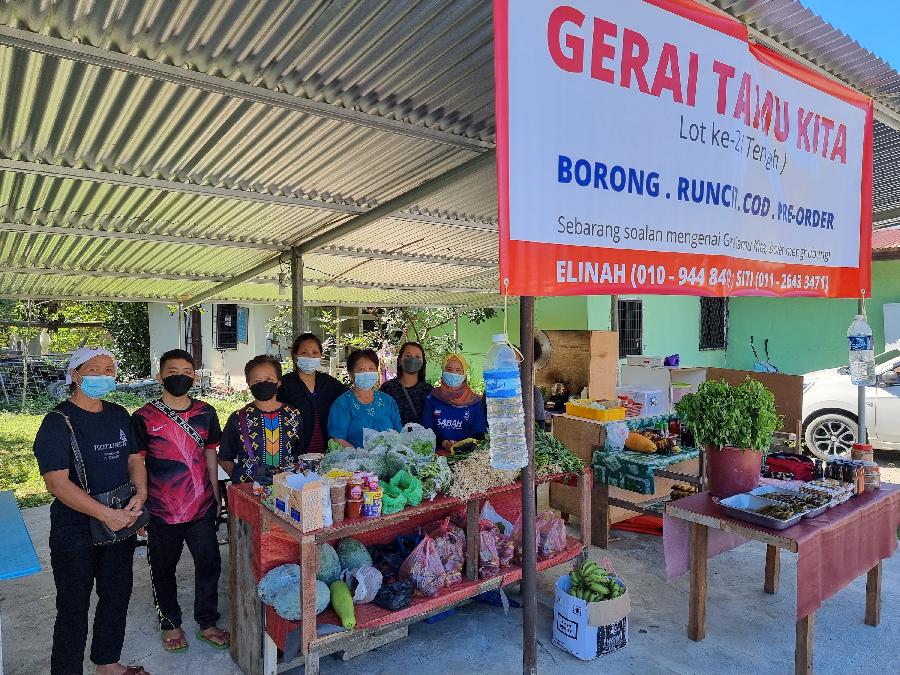


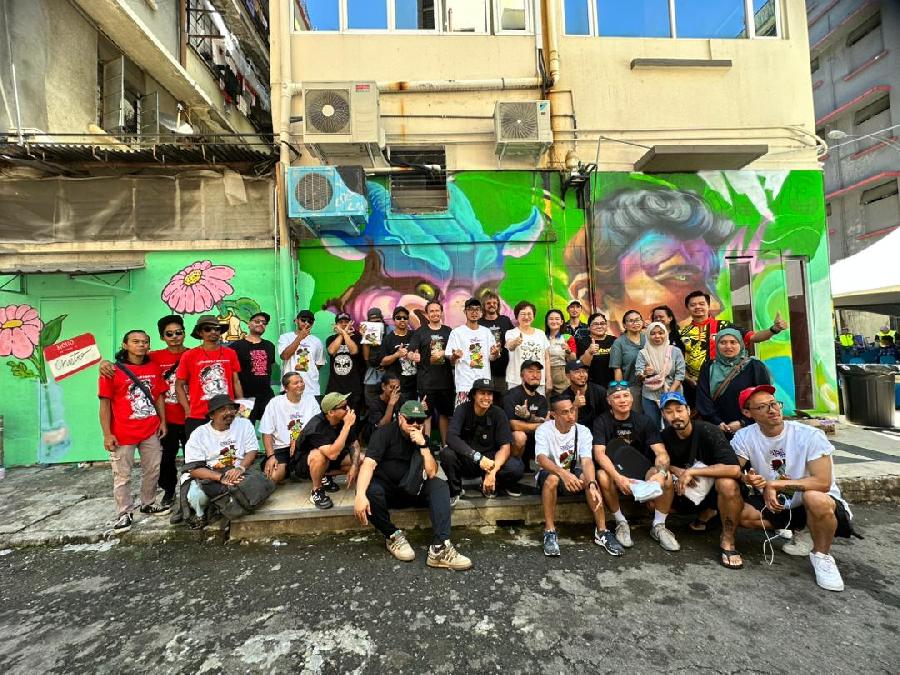

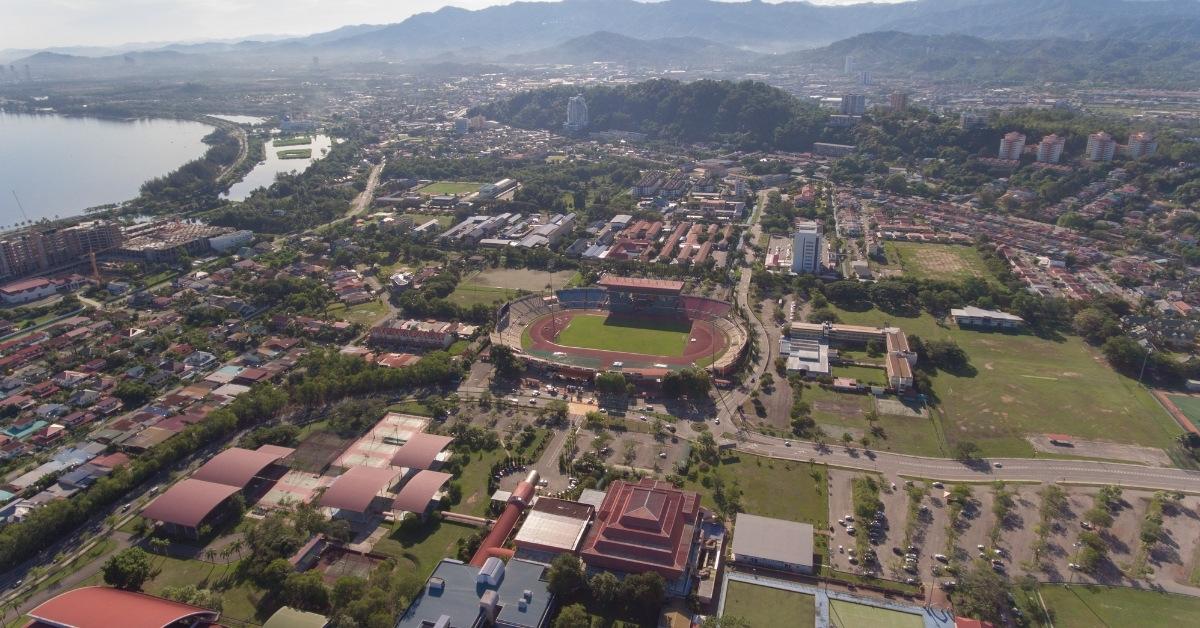
.png)




.jpeg)
